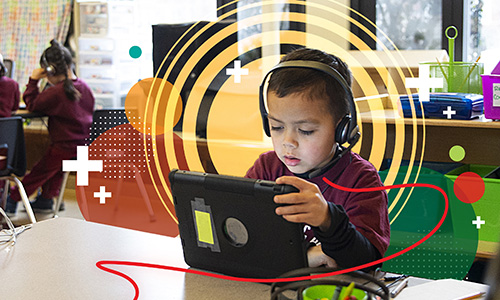Book
An intelligent CAT that can deal with disengaged test taking
Wise, S. (2020). An intelligent CAT that can deal with disengaged test taking. In H. Jiao & R. W. Lissitz (Eds), Application of artificial intelligence to assessment (pp. 161-174). Information Age Publishing.
June 2020
By: Steven Wise

Description
This book presents varied applications of artificial intelligence (AI) in test development, including research and successful examples of using AI technology in automated item generation, automated test assembly, automated scoring, and computerized adaptive testing.
This book was published outside of NWEA. The full text can be found at the link above.
Related Topics


MAP Reading Fluency with Coach Evidence Base
This document provides an overview of the research underlying MAP Reading Fluency with Coach’s AI-powered intelligent reading tutor and the research on key elements of early literacy instruction. It describes the components of the MAP Reading Fluency with Coach pedagogy and the research base supporting each component.
By: Amy Endo
Products: MAP Reading Fluency
Topics: Early learning, Empowering educators, Innovations in reporting & assessment, Reading & language arts


Predicting Amira Reading Mastery Based on NWEA MAP Reading Fluency Benchmark Assessment Scores
This document presents results from a linking study conducted by NWEA in May 2024 to statistically connect the grades 1–5 English Amira Reading Mastery (ARM) scores with the Scaled-Words-Correct-Per-Minute (SWCPM) scores from the MAP Reading Fluency benchmark assessment taken during Fall and Winter 2023–2024.
By: Fang Peng, Ann Hu, Christopher Wells
Products: MAP Reading Fluency
Topics: Computer adaptive testing, Early learning, Measurement & scaling, Reading & language arts


Exploring the educational impacts of COVID-19
This visualization was developed to provide state-level insights into how students performed on MAP Growth in the 2020–2021 school year. Assessments are one indicator, among many, of the student impact from COVID-19. Our goal with this tool is to create visible data that informs academic recovery efforts that will be necessary in the 2022 school year and beyond.
By: Greg King
Topics: COVID-19 & schools, Innovations in reporting & assessment


Executive Summary: Content proximity spring 2022 pilot study
This executive summary outlines results from the Content Proximity spring 2022 pilot study, including information on the validity, reliability, and test score comparability of MAP Growth assessments that leverage this new item-selection algorithm.
By: Patrick Meyer, Ann Hu, Xueming (Sylvia) Li
Products: MAP Growth
Topics: Computer adaptive testing, Innovations in reporting & assessment, Test design


Content Proximity Spring 2022 Pilot Study Research Report
The purpose of this research report is to provide detailed information about updates to the MAP Growth item-selection algorithm. This brief includes results from the Content Proximity pilot study, including information on the validity, reliability, and test score comparability of MAP Growth assessments that leverage this new item-selection algorithm.
By: Patrick Meyer, Ann Hu, Xueming (Sylvia) Li
Products: MAP Growth
Topics: Computer adaptive testing, Innovations in reporting & assessment, Test design


Achievement and Growth Norms for Course-Specific MAP Growth Tests
This report documents the procedure used to produce the achievement and growth user norms for a series of the course-specific MAP® Growth™ subject tests, including Algebra 1, Geometry, Algebra 2, Integrated Math I, Integrated Math II, Integrated Math III, and Biology/Life Science. Among these tests, Integrated Math I, Integrated Math II, Integrated Math III, and Biology/Life Science were the first time to have their norms available. The remaining tests, i.e., Algebra 1, Geometry, and Algebra 2, had their norms updated including receiving more between-term growth norms by using more recent test events. Procedure for norm sample selection and a model-based approach using the multivariate true score model (Thum & He, 2019) that factors out known imprecision of scores to generate the norms are also provided in detail, along with the snapshots of the achievement and growth norms for each test.
By: Wei He
Products: MAP Growth
Topics: Measurement & scaling


Longitudinal models of reading and mathematics achievement in deaf and hard of hearing students
New research using longitudinal data provides evidence that deaf and hard of hearing (DHH) students continue to build skills in math and reading throughout grades 2 to 8, challenging assumptions that DHH students’ skills plataeu in elementary grades.
By: Stephanie Cawthon, Johny Daniel, North Cooc, Ana Vielma
Topics: Equity, Measurement & scaling


